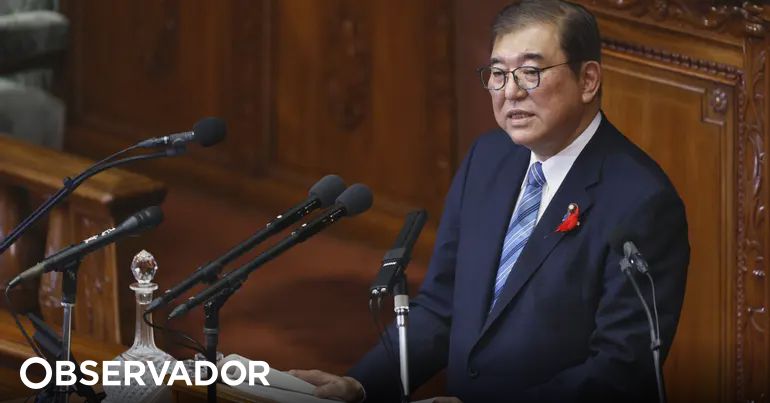
The new Japanese Prime Minister, Shigeru Ishiba, warned that “today’s Ukraine could be the precursor of tomorrow’s East Asia”, in a veiled reference to fears of a Chinese invasion of Taiwan.
“Why didn’t deterrence work in Ukraine?” asked Ishiba in his first political speech to the Japanese parliament, cited by the French agency AFP.
Ishiba, 67, took office as Japan’s prime minister on Tuesday, succeeding Fumio Kishida, who resigned after several corruption scandals in the Liberal Democratic Party (PDL) caused his popularity to plummet.
“If we also take into account the situation in the Middle East, the international community is increasingly divided and prone to confrontation”disse Ishiba.
Relations between Japan and China have deteriorated in recent years.
Beijing has asserted a military presence in disputed territories in the region and Tokyo has strengthened security ties with the United States and its allies.
Ishiba supports the creation of a regional military alliance along the lines of NATO and stated, on Tuesday, that Japan’s security “has never been so threatened since the end of the Second World War” (1939-1945).
Internally, Ishiba said he intends to increase salaries in Japan through a new monetary stimulus program, and support for local authorities and low-income families.
This decade, it stated that it intends to increase the average national minimum wage to 1,500 yen per hour (9.30 euros, at current exchange rates), an increase of almost 43% compared to the current salary of 1,050 yen (6.50 euros)
“We will achieve wage increases that exceed price increases, increasing individual productivity and adding value,” he stated.
In a reaction to the speech, Takahide Kiuchi, from the Nomura research institute, commented that Ishiba’s statements at this stage are “probably preparatory to the next general elections”, which the new PDL leader said he will call on October 27.
“The Ishiba administration’s main priority is to win these elections and consolidate its power base”, said the analyst, quoted by AFP.
Daiju Aoki of UBS SuMi TRUST noted that “the absence of a visible growth strategy by the Ishiba administration constitutes a political risk” for the prime minister.
Despite the PDL being the favorite, Ishiba’s government only has 51% support from the population, according to a survey published on Wednesday by the Nikkei daily, below the result of Kishida’s first executive, when he took office at the end of 2021.
In his speech to parliament, Ishiba also described the birth rate situation as a “silent emergency” and announced that the government will promote measures to support families, such as flexible working hours.
Japan, like many industrialized countries, faces a looming demographic crisis, with an aging population and a stubbornly low birth rate.
According to the World Bank, the country of 125 million inhabitants has the oldest population in the world, after Monaco.
Last year, Japan’s birth rate was 1.2, far below the 2.1 children needed to maintain population levels.
Source: https://observador.pt/2024/10/04/novo-primeiro-ministro-do-japao-preocupado-com-divisoes-no-mundo/

